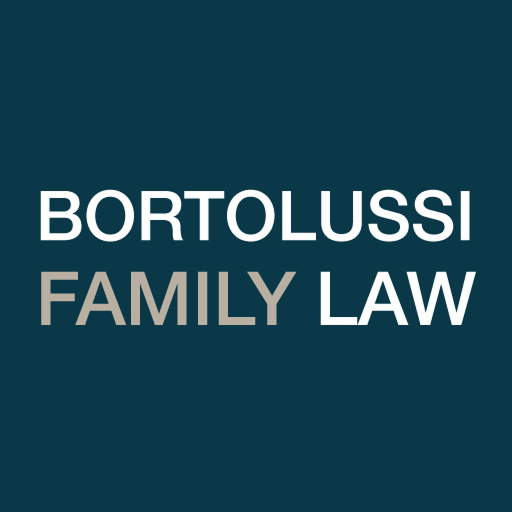Mediation and Collaborative Law – What is the Difference?

There are different ways to resolve family law issues arising from the breakdown of a relationship. Many parties start by trying to negotiate between themselves or through their legal counsel. Sometimes parties will choose very early on to enter into mediation or the collaborative law process before much negotiation has occurred or will decide after some attempts at negotiation to try another approach for remaining issues. Of course, litigation in the family court system remains an option for parties to have a judge make decisions about their matter.
This blog will focus on two voluntary processes, meaning that the parties must agree on the process as well as the resolution: mediation and collaborative law. These are both considered alternative dispute resolution processes (also known as “ADR”).
Since its amendment in 2021, the federal Divorce Act requires family law lawyers to encourage clients to consider alternative dispute resolution processes when appropriate rather than automatically proceeding to court. However, attempting mediation or collaborative law before starting a court application is not mandatory.
What Is Mediation?
Mediation is a process in which the parties select an independent third party with expertise and accreditation as a family law mediator. This mediator helps facilitate a resolution by assisting the parties in discussing the issues, evaluating proposals, and making compromises. Mediation can be done with or without legal counsel.
Mediation Reports & Separation Agreements
Depending on the kind of mediation, the mediator may draft a mediation report containing the points of agreement between the parties. The mediator will often produce a report, which the parties should have reviewed by their own independent legal counsel. Having independent counsel review the report ensures both parties understand what has been agreed to and helps to ensure the enforceability of the agreement. The report can be turned into a binding separation agreement that meets the requirements of the Family Law Act. Sometimes, if the parties are represented by legal counsel at the mediation, the report can be duly signed as a separation agreement and become binding immediately.
Parties do not always come to a resolution at mediation. A mediator is not empowered to decide any of the issues or impose an order. The parties must agree on the resolution and then have that resolution included in a separation agreement for the mediated resolution to be binding.
Flexibility of Mediation
Many mediations are now done virtually through Zoom or a similar platform. It is also possible to structure a mediation as a “shuttle mediation,” where the parties are in different physical spaces (as well as different “Zoom rooms” if the mediation is occurring virtually), and the mediator moves back and forth between them. This means that parties do not have to be face-to-face or interact directly.
Parties may also decide to only mediate specific issues, such as parenting mediation. Other parties may choose to try to mediate all issues, including parenting, support, and property issues. Parties need to agree on what the issues are for mediation beforehand; this is usually included in the mediation agreement, which is an agreement that the parties sign with the mediator that sets out the rules of the process.
What Is Collaborative Family Law?
Collaborative family law is a voluntary dispute resolution process that requires both parties and their respective lawyers to agree in writing that they will attempt, in the process, to resolve the issues arising out of the separation, without resorting to or threatening litigation. The process includes the parties, their family law lawyers, and, on agreement of the parties, may include the input of multiple experts or stakeholders, including any other person with insight into the issues (for example, social workers, parental capacity assessors, accountants, etc.). Collaborative family lawyers have special training in working cooperatively, focusing on resolution and solutions, and supporting the parties through their negotiations.
Before starting a collaborative family law process, the parties and their lawyers will sign a collaborative family law participation agreement. This participation agreement will list the issues to be resolved and will also have a term that prohibits the parties and their lawyers from going to court before trying to resolve matters through the collaborative process. This is meant to ensure that the parties and their counsel are committed to a resolution out of court as much as possible. If the collaborative process breaks down, the parties will need to retain new counsel to proceed to litigation in the courts.
What Are Some Benefits of Collaborative Family Law & Mediation?
Both collaborative family law and mediation offer significant benefits in resolving family law disputes. They both have the potential to be faster and less costly than the court process and provide the parties with control over the result (rather than leaving decisions to a judge). These processes may also help parties craft more creative agreements and learn to cooperate better with one another. Maintaining a healthy relationship between the parties can be particularly critical in cases where they will be co-parenting for the foreseeable future.
In the collaborative family law process specifically, the parties may be more incentivized to come to a negotiated resolution because they have agreed not to use the court process and would need to start over with a new lawyer again to do so.
What Are Some Drawbacks to Collaborative Family Law & Mediation?
While collaborative family law or mediation can be faster and less expensive than court, this is not always the case. Where the collaborative process fails or mediation is unsuccessful, parties may still need to use the court process to resolve some or all outstanding issues.
Emergency Situations & Family Violence
These processes are not often appropriate in emergency situations. For example, alternative dispute resolution may not have the urgency or finality required in volatile financial, domestic violence, child abduction or parenting cases requiring emergency court orders.
Alternative dispute resolution processes are generally not considered appropriate when there is a history of family violence and/or serious mental health or substance use issues. This is because family violence can cause significant trauma and a power imbalance between the parties, such that voluntary processes are rendered coercive or may pose a risk to security.
When serious mental health or substance use issues are present, an individual’s capacity to make informed decisions may be compromised and may again result in an unfair power imbalance between the parties.
Court Orders & Enforcement of Financial Disclosure
One key aspect of both collaborative law and mediation, if support or property issues are being addressed, is that full and frank financial disclosure from both parties is required. If one party does not fully disclose their financial information, then the court process may again be more suitable as a court can order financial disclosure from a withholding party, impose penalties for non-disclosure, or make orders in the absence of disclosure.
Contact Bortolussi Family Law in Vaughan for Trusted Family Mediation & Collaborative Law Services
The skilled family and divorce lawyers at Bortolussi Family Law have extensive experience representing clients in family mediation and collaborative family law. We diligently advocate for our clients’ rights and secure their interests while maintaining a productive and healthy family dynamic as much as possible. From our office in Vaughan, we service clients across the Greater Toronto Area, including Mississauga, Brampton, Caledon, Whitchurch-Stouffville, Woodbridge, Maple, Kleinburg, Concord, Bolton, Nobleton, Markham, and Etobicoke. To schedule a confidential consultation, please contact us online or call 416-987-3300.
